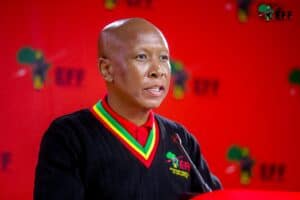‘Whatever problem you may have, there is always a solution in the background.’

President Cyril Ramaphosa has defended and finally explained his “consultative” leadership style, saying he learned it from Nelson Mandela and the African forebears for whom it worked.
Addressing the National Council of Provinces in Cape Town on Thursday, he said he was often accused of being too consultative, like traditional leaders for whom the nature of their work required them to consult with their communities all the time.
But even as he was being accused of being too consultative, he still wanted to be able to advance the consultation process.
ALSO READ: Ramaphosa’s plan to professionalise public service will be met with resistance
“I conclude to myself that we are doing what our forebears had always done where nothing is ever done without proper consultation with our people.
“It is a practice and process that I will continue to hold on to because there is nothing that beats being consultative, that beats hearing all the views of everyone else,” Ramaphosa said.
Mandela had moulded his leadership style around consultation.
“He was consulting people, hearing their views and at times he would even tick out those who disagreed with him the most and say, ‘I want to hear those views’.
“Because it is after hearing the views that he is then able, with confidence, to move forward and be decisive.”
During the constitutional negotiations, they proceeded on the basis that there was no problem without a solution.
“Whatever problem you may have, there is always a solution lurking around in the background,” Ramaphosa said.
He challenged traditional leaders to raise issues, not by complaining, but coming forward with solutions.
If they could be oriented that way, then tackling problems and challenges would become easier.
READ MORE: Molefe continues to take swipes at Ramaphosa
Democratic leadership, compared to autocratic and other styles of leaderships, may have inherent conflicts due to its characteristic divergent views, but it remains the best option.
This was the general view of various experts who participated in a webinar debate on leadership, hosted by Professor Mazwe Majola of the Worldwide Institute of Leadership and Development.
The panel comprised political analyst and associate professor at the school of governance at North West University Barry Hanyane, MMC for economic development at the City of Joburg Lawrence Khoza and RBT Resources chief executive Bongani Biyela.
They agreed that democratic leadership style had its flaws and was constantly under attack.
Khoza said while democratic leadership was supposed to be people-led, “these days democracy is for the elite”.
But there were autocrats, such as Paul Kagame of Rwanda, who was seen as strong and decisive because his country had become an economic success story.
ALSO READ: No beef between Ramaphosa and Mkhize, says health department
Hanyane highlighted the characteristics of democratic leadership, among others, as diverse views, intent to achieve high standards and expectations of high levels of commitment from role players while it prioritised honesty, transparency, probity, the rule of law, accountable public administration principles etc.
Democratic leadership encouraged the principle of “separation of powers, promoted a culture of cooperative governance and the human rights culture and overall run by the masses [people]”.
This leadership style allowed for more efficient problem-solving, built team relationships, increased morale and job satisfaction with a main characteristic to have mass and universal appeal.
For more news your way, download The Citizen’s app for iOS and Android.






